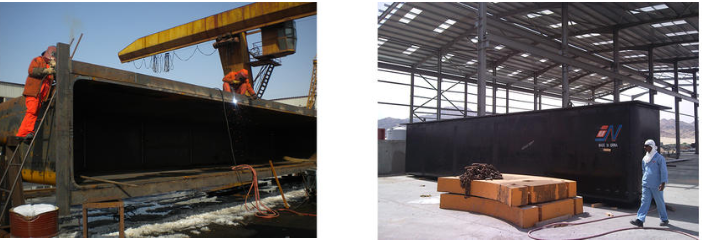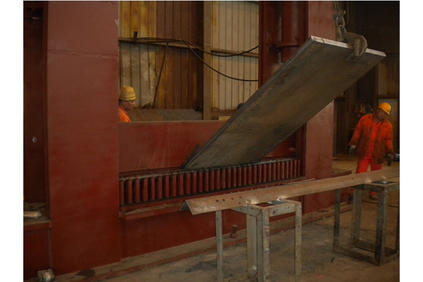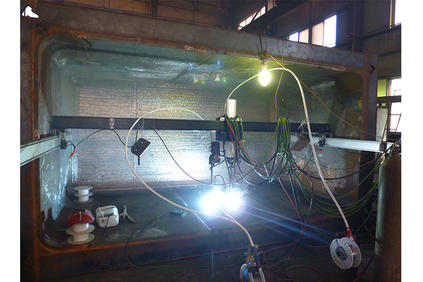Hot dip galvanizing is a widely used method of protecting steel from corrosion. It immerses the steel in a bath of molten zinc, forming a protective layer on the surface of the steel. This process is often called a zinc pot because it involves immersing steel in a pot of molten zinc. The resulting galvanized steel is known for its durability and corrosion resistance, making it a popular choice for a wide range of applications, from construction to automotive manufacturing.
A common question associated with hot-dip galvanizing is whether the zinc coating will corrode the galvanized steel over time. To solve this problem, it is important to understand the properties of zinc and how they interact with the steel substrate.

Zinc is a highly reactive metal that, when applied to steel through hot-dip galvanizing, forms a series of zinc-iron alloy layers on the surface of the steel. These layers provide a physical barrier, protecting the underlying steel from corrosive elements such as moisture and oxygen. Additionally, the zinc coating acts as a sacrificial anode, which means that if the coating is damaged, the zinc coating will corrode in preference to the steel, further protecting the steel from corrosion.
In most cases, a zinc coating on galvanized steel provides long-term corrosion protection even in harsh environments. However, in some cases, the galvanized coating can become compromised, leading to potential corrosion of the underlying steel. One such situation is exposure to acidic or alkaline environments, which accelerates corrosion of the zinc coating and compromises its protective properties. Additionally, prolonged exposure to high temperatures can cause the zinc coating to deteriorate, potentially leading to corrosion of the steel substrate.
It is important to note that while the zinc coating on galvanized steel is very effective at protecting the steel from corrosion, it is not immune to damage. Mechanical damage, such as scratches or gouges, can compromise the integrity of the zinc coating and put the underlying steel at risk of corrosion. Therefore, proper handling and maintenance of galvanized steel products is essential to ensure their long-term corrosion resistance.


In conclusion, hot dip galvanizing, also known as zinc pot, is an effective way to protect steel from corrosion. Galvanizing forms a durable protective layer on the steel surface, providing long-term corrosion resistance in most environments. While galvanized coatings can become damaged under certain conditions, proper maintenance and handling of galvanized steel products helps ensure their continued corrosion resistance. Overall, galvanized steel remains a reliable and durable choice for a variety of applications due to the protective properties of zinc coating.
Post time: Aug-27-2024
